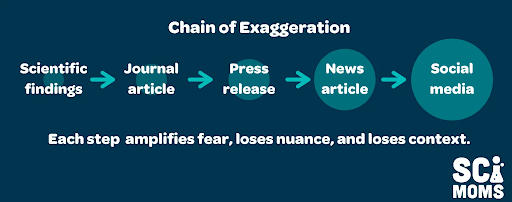Defining science policy
Science policy is defined as concerned with the “allocation of resources for the conduct of science towards the goal of best serving the public interest.” As such, science policy is one of the many ways in which scientists can influence society.
Science policy topics could include:
- How science is funded
- Who makes up the scientific workforce
- How scientists can use their skills in policy making
- How scientific discoveries translate into technological innovation
- How the U.S. can remain competitive in the global policy landscape
Why should I engage in science policy?
Engaging in science policy provides exposure to different ways of thinking, and can expand our understanding of the world. One point of emphasis is that ECRs can make an impact and can bring a fresh perspective to policy making. Through policy engagement, early career researchers (ECRs) will have the opportunity to address significant societal issues and make a difference in an area of interest. Scientists can bring expertise to the table, which policymakers seek. As a scientist, it is important to engage in the community, as we’ve seen during the recent pandemic.
Principles of science policy
Science and policy are interdependent and bidirectional, and they influence each other. There are two fundamental concepts in policy, which are: science for policy and policy for science. Depending on your area of expertise and setting for policy making, you may engage in either or both of these ways to create impact.

Where do I pursue science policy?
There are many settings where you might pursue science policy roles. This includes think tanks and universities, as well as professional societies and non-profits, which are often focused on research and advocacy (e.g. policy analyst, advocacy manager). Roles at funding agencies and federal and state governments typically are more neutral, but you might still be writing statements on particular issues or working in program-related roles (e.g. health program specialist). More public-facing roles can include lobbying on Capitol Hill and working on Congressional Committees.
What skills do I need to develop for science policy?
As a scientist, you have subject-matter expertise, understand the scientific process, and have performed data analysis. In addition, you’ve also been trained to engage in critical thinking and project management. All of these transferable skills are useful when transitioning from laboratory research into science policy positions.
A fundamental skill for ECRs to develop for science policy is communicating with non-scientists. When targeting a particular policymaker, it’s important to do prior research on their background and interest, and design clear and actionable recommendations to be delivered at the appropriate time. The second skill to practice is performing audience analysis, which entails understanding audience expectations, demographics, and delivering your message in the right settings.
Another important skill is engaging in consensus building for policy making, which is a creative and dynamic way of reaching agreement in a group. This is critical when developing a certain policy or agreeing on community standards, as well as in getting buy-in from key stakeholders on a common advocacy message on Capitol Hill. In addition, ECRs should work on their networking skills and building professional relationships, which constitute much of how the field operates as a whole. These skills will also come in handy when building connections to policymakers and engaging them in issues of interest to their constituents.
How do I effectively engage in science policy?
To engage in science policy, you need to be aware of the latest information through relevant news outlets and newsletters covering federal issues (e.g. AIP FYI newsletter). Writing op-eds for your local newspaper is also beneficial, in addition to using social media to keep up with the latest actions from relevant organizations (e.g. AAAS, NASEM). In order to engage in policy more deeply, ECRs can perform informational interviews with science policy professionals, call local representatives, start a science policy discussion group, or apply for science policy fellowships (e.g. GSA Policy Fellowships Database).
How do you craft effective policies?
Crafting effective policies requires thoroughly researching the background information, and assessing the need for the proposed policy. ECRs should then define the main concepts and key points, as well as the overall purpose and goal of the policy, using a writing style that is different from academic writing. Next, define the scope of the policy and assess the short-term and long-term impacts of the policy recommendation on stakeholders and the current political landscape. Once written, establish a clear course of action for the steps taken to implement the policy recommendations.
Principles of policy writing
If you are working in a science policy role, writing is likely to encompass a large portion of your job. However, communicating policy is different from academic writing. In academia, you might start with the background, followed by supporting details, results and conclusions. But policy writing starts with the bottom line, answers the question “so what? why do I care?” and then adds supporting details, being essentially a flipped argument from academic writing.

When communicating policy, you want to ask yourself:
- Who is my audience?
- What is my message for my audience?
- What medium will I use to communicate my message to my audience?
Certain messages will be communicated more effectively in writing than others, and the way you write will be different depending on the audience, so your message should be very specific and directed towards a particular audience. Many resources exist for writing op-eds, crafting effective policy memos, or other types of policy work.
Some principles of policy writing include:
- Use active verbs, which convey a certain tone of leadership and responsibility, and also use analogies and examples. And you’ll want to avoid jargon, euphemisms, clichés, wordplays, and puns.
- Only include details critical to your story and keep your story true to the facts. You want your story to be evidence-based, but only contain the necessary information which the reader needs in order to understand your argument.
- The only way you can develop policy-writing skills is to practice, so expect a lot of drafts in the process. Be ready to revise and rewrite, and always cite your sources.
Journal of Science Policy and Governance (JSPG)
One way to practice your skills for policy research and writing, and to engage in policy debates, is to submit your work to the Journal of Science Policy and Governance (JSPG). JSPG is an internationally-recognized, open access, peer-reviewed research publication and a 501-(c)3 non-profit organization. JSPG helps students and early career scholars of all academic backgrounds bolster their research and writing credentials in science and technology policy, and encourage them to contribute to the policymaking process at all levels of government.
JSPG publishes research-based op-eds, technology assessments, policy memos and analyses, white papers, book reviews, workshop proceedings, and other research articles concerning every corner of science and technology policy. JSPG staff also actively promote published works via social media, global mailing lists, individual and organizational outreach, and a podcast enabling published work from early career voices to reach broader and more diverse audiences. Follow JSPG on Twitter, Facebook and Instagram at SciPolJournal.
Conclusions
Policy making can be a very useful way to make an impact on societal issues, and scientists are needed in policy roles in various settings and at different levels of government. Learning how to communicate your policy ideas is critical to making an impact, and this is especially true for effective policy writing. Becoming a good writer for science policy requires a lot of practice, but once mastered can help you advance in your goals and career in policy.



Leave a Reply